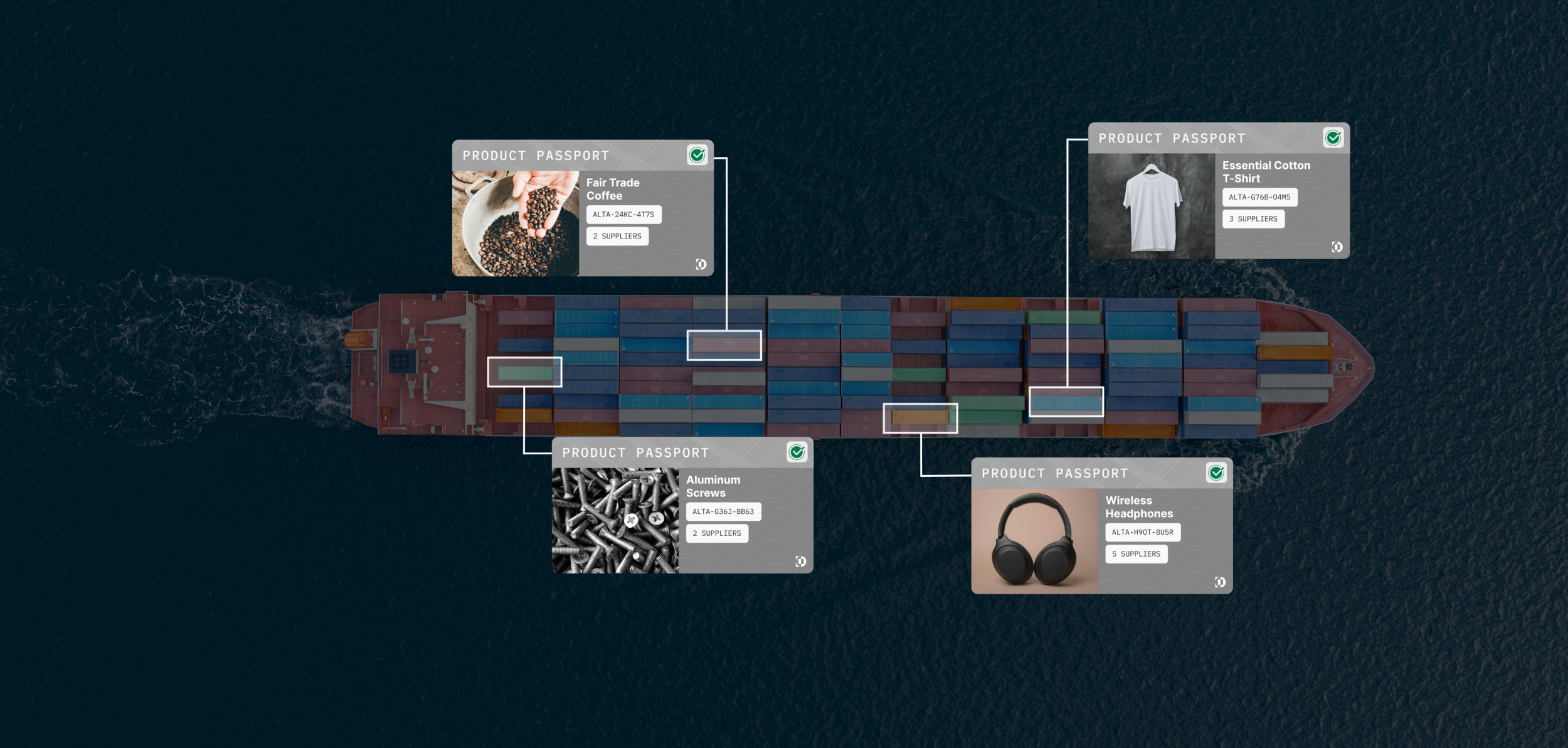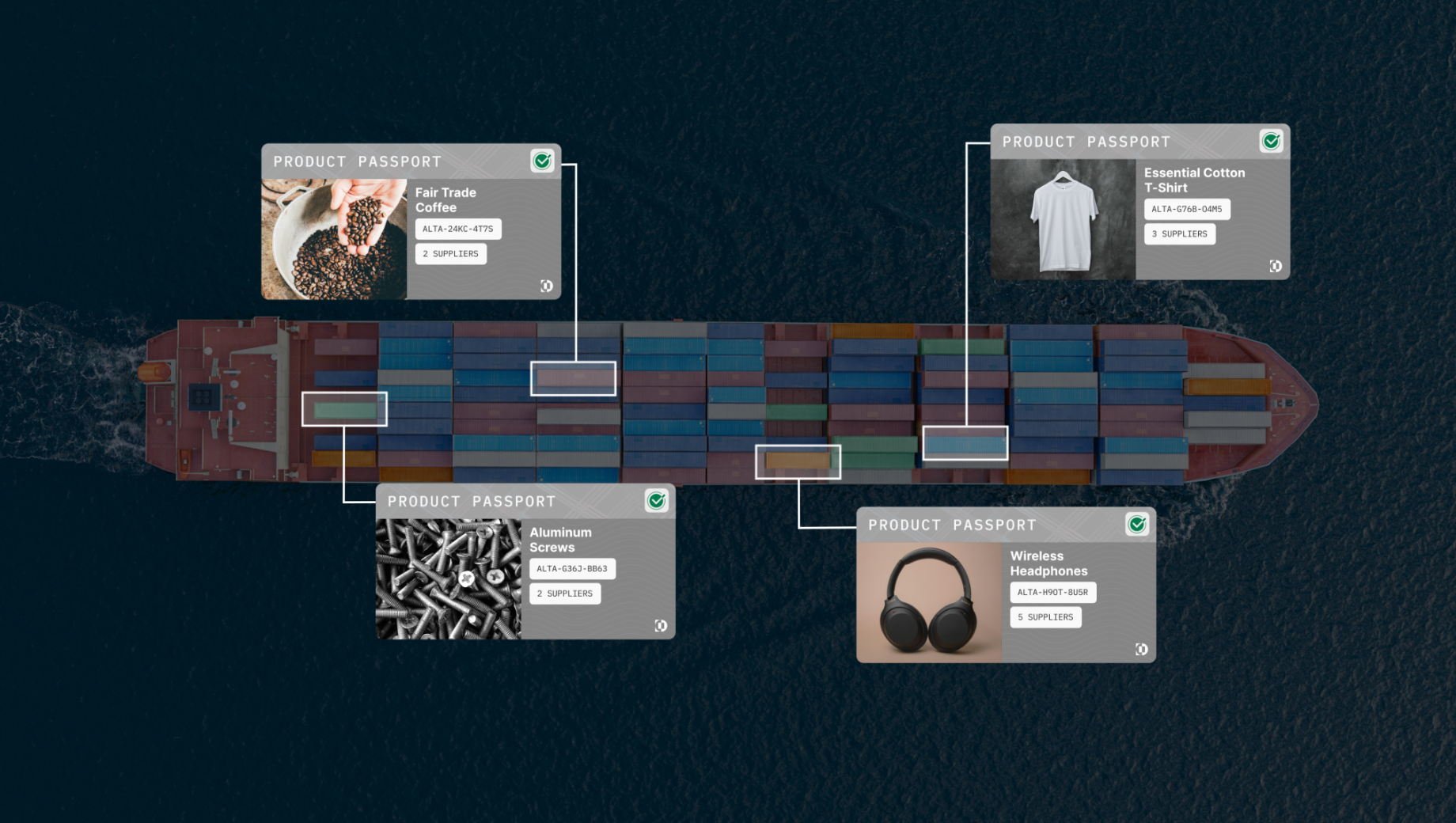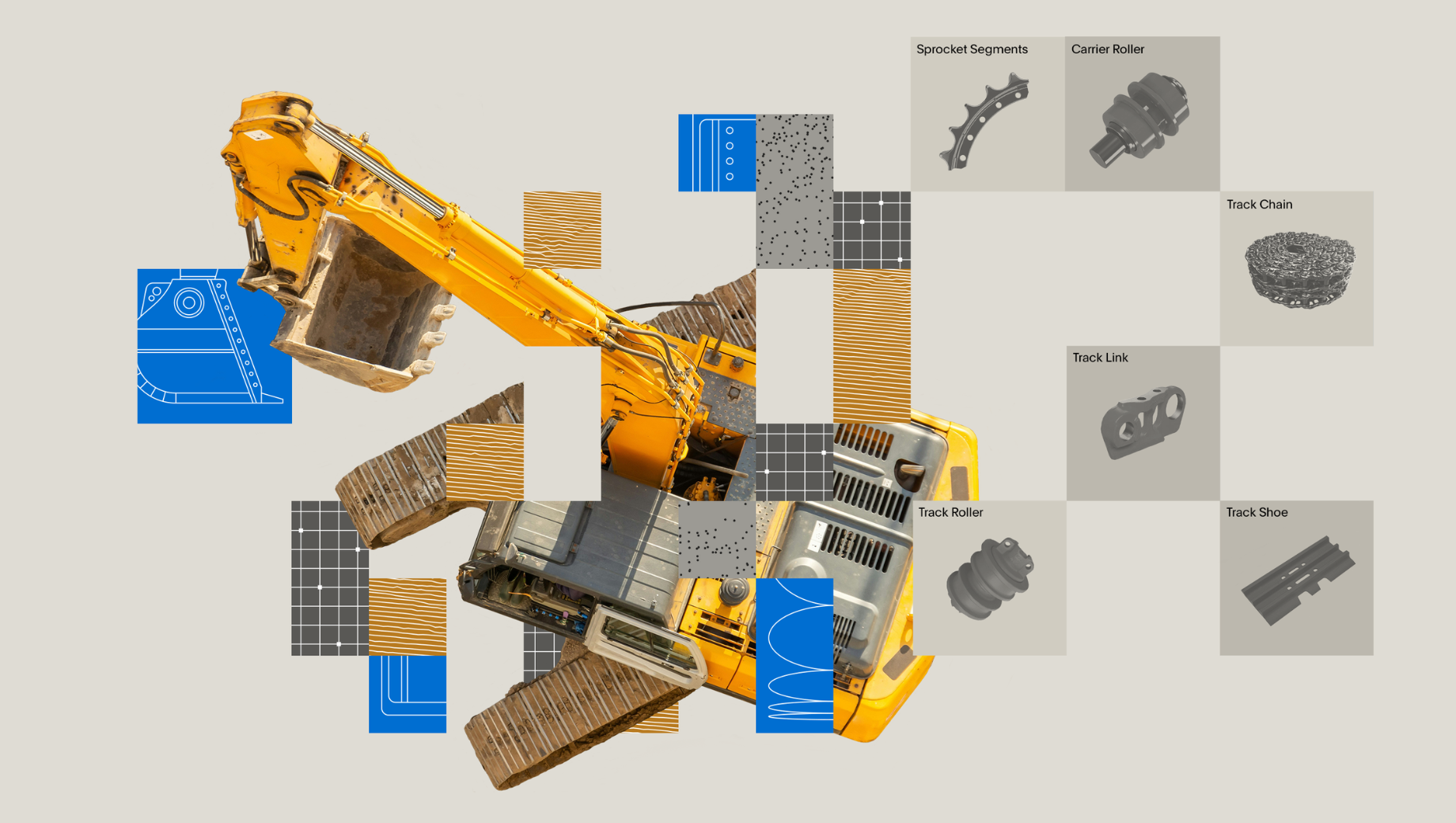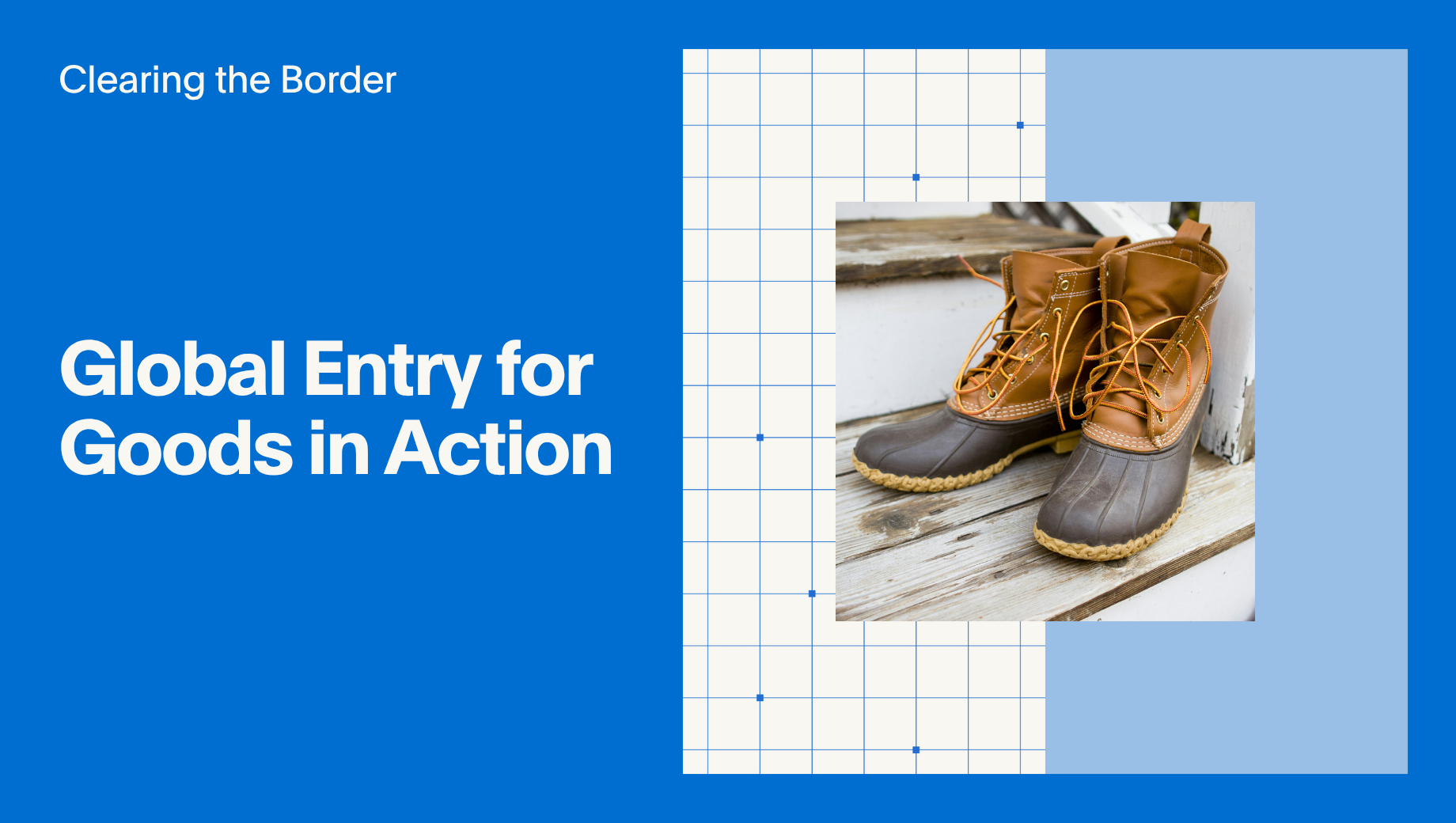A Once-in-Generations Refactoring of the Global Economic Order
Global trade needs to be rearchitected. The outsourced, opaque, and "just-in-time" supply chains of the free trade era are collapsing under the pressure of geopolitics, trade barriers, and constant business interruptions in today's volatile environment.
Similarly, customs processes are long overdue for a reboot. The standard transactional customs entry can't keep up with the speed and volume of e-commerce, the complexity of component-based tariffs, or the demands of managing compliance across the entire value chain of the products being shipped.
This new geopolitical, regulatory, and economic landscape requires a global trade architecture built on trusted networks. This means achieving visibility and traceability across global value chains, sharing supply chain data with governments long before imports arrive, and using AI to help all parties process, screen, and ensure compliance across the network.
At Altana, we’ve been developing the building blocks of a network for trusted trade for years. We have worked with U.S. Customs and Border Protection (CBP) to enforce trade regulations across global supply chains; we’ve worked with large logistics providers like Maersk to hone trade compliance AI models and workflows at scale; and we’ve worked with global enterprises and their suppliers to illuminate and trace their product value chains.
Today, we are announcing the final building block of our AI-powered network for trusted trade: Trade Compliance Workflows for the enterprise. This new agentic AI solution allows importers to manage tariffs and trade compliance across product value chains within a collaborative public-private network. It provides importers with radical productivity gains, significant duty savings, and customs pre-validation and assurance. Phase 1: Illumination for Ethical Sourcing (UFLPA)
The initial catalyst for a new trade compliance paradigm was the Uyghur Forced Labor Prevention Act (UFLPA) — a landmark regulation banning the import of goods tied to forced labor originating in Xinjiang, China. The implementation and enforcement of this law required businesses and CBP to urgently build upstream supply chain visibility, shifting from traditional transaction-level screening to network-based screening. To determine admissibility and eventually duty rates, CBP needed visibility into the multi-tier value chain of a given product, and Altana empowered them to do so.
In 2023, CBP selected Altana to support the enforcement of the UFLPA. By connecting fragmented data across billions of transactions in Altana’s public-private network, the platform empowered more than 2,000 CBP agents to pinpoint goods with forced labor exposure and illuminate upstream supplies in high-risk regions. The private sector also took note. Maersk partnered with Altana to become the first major logistics provider to bring to market an integrated solution that helps customers take action on forced labor and compliance concerns in their value chains.
Phase 2: AI-Powered Supply Chain Security and Illicit Trade Enforcement
The network-based enforcement workflow for UFLPA quickly proved its architectural adaptability and CBP recognized that the same principles used to trace unethical sourcing could be applied to other forms of illicit trade.
As a result, CBP expanded its use of Altana for supply chain security, helping to target the trafficking and manufacturing networks involved in the global supply of illicit fentanyl and other narcotics. Altana’s counternarcotics targeting module was our first agentic AI solution for monitoring global supply chain networks and providing enforcement intelligence and explanations to CBP targeters and analysts.
Phase 3: Precision Targeting for Revenue Enforcement
Success in both ethical sourcing and counternarcotics paved the way for new use cases. CBP expanded its use of Altana to enhance revenue enforcement, targeting tariff evasion through “transshipment” and anti-dumping and countervailing duties (AD/CVD) fraud. Leveraging agentic AI systems trained on the Altana product network, Altana assesses shippers, facilities, and shipments across the global supply chain to determine whether substantial transformation is occurring in the export destination to the US and if duties are being avoided through misdeclaration.
Phase 4: Product Passports: The Foundation for Network-Shaped Compliance
With many of the world’s largest importers and logistics providers managing their global value chains with Altana, and with CBP using Altana to screen and enforce compliance across global value chains, the next step was to connect the two for enhanced enforcement efficiency and more reliable, compliant trade. We achieved this by pioneering Product Passports under the Global Business Identifier program at CBP, enabling major importers and logistics providers like BASF, LL Bean, and Maersk to make trade attestations at the level of a product value chain. Now, trade compliance obligations like forced labor, Section 232 tariffs, and country of origin can be managed continuously and constructively with Altana’s dynamic network view of a good's value chain. This enables screening and pre-validation before the goods are shipped –– or even manufactured. Phase 5: AI for Customs Modernization
These initial enforcement achievements demonstrated the power of agentic AI to enhance the efficiency of trade enforcement. Recognizing this potential, in September of 2025, CBP expanded its use of Altana for broader trade enforcement and customs modernization. Now, Altana’s AI systems and enforcement workflows are being applied to classify, screen, and triage the flows of e-commerce and freight through the Altana product network. This includes applying AI systems for HS classification, valuation, country of origin, and tariff stacking in order to ensure that proper duties are paid. And it applies Altana’s existing forced labor, narcotics, and restricted party screening models to real-time data flows on Product Passports and ecommerce data flows into CBP.
Altana Trade Compliance Workflows: Your Continuous AI Compliance Officer
With Trade Compliance Workflows, businesses can now run their trade compliance programs using the same AI models that CBP uses for trade enforcement. On Altana’s product network, an AI agent acts as a business’s continuous compliance officer. This agent calculates, audits, and monitors products and their value chains 24/7, flagging only exceptions and risks for review. Businesses can collaborate directly with suppliers in-platform for traceability and information gathering, using Product Passports to seamlessly fill in any data gaps. Additionally, they can collaborate and share data from their product catalog with logistics providers, enabling value-added advisory services and efficient trade execution. Throughout this process, businesses maintain full oversight, auditability, and control.
With Altana Trade Compliance Workflows, businesses can:
- Classify products 8X faster.
- Automate origin determination.
- Automate accurate duty calculations, including complex tariff stacking rules.
- Audit existing classification, origins, and duty rates, calculating duty overpayment or underpayment
- Predict and validate material composition for Section 232 tariffs.
- Automate trade-agreement and preference-program qualification
- Continuously screen your goods and their value chains for forced labor and restricted parties.
- Automatically flag partner-government agency (PGA) filing requirements and populate attestations from your product catalog and parsed documents.
- Pre-validate compliance with CBP ahead of shipping –– or manufacturing –– using Product Passports.






